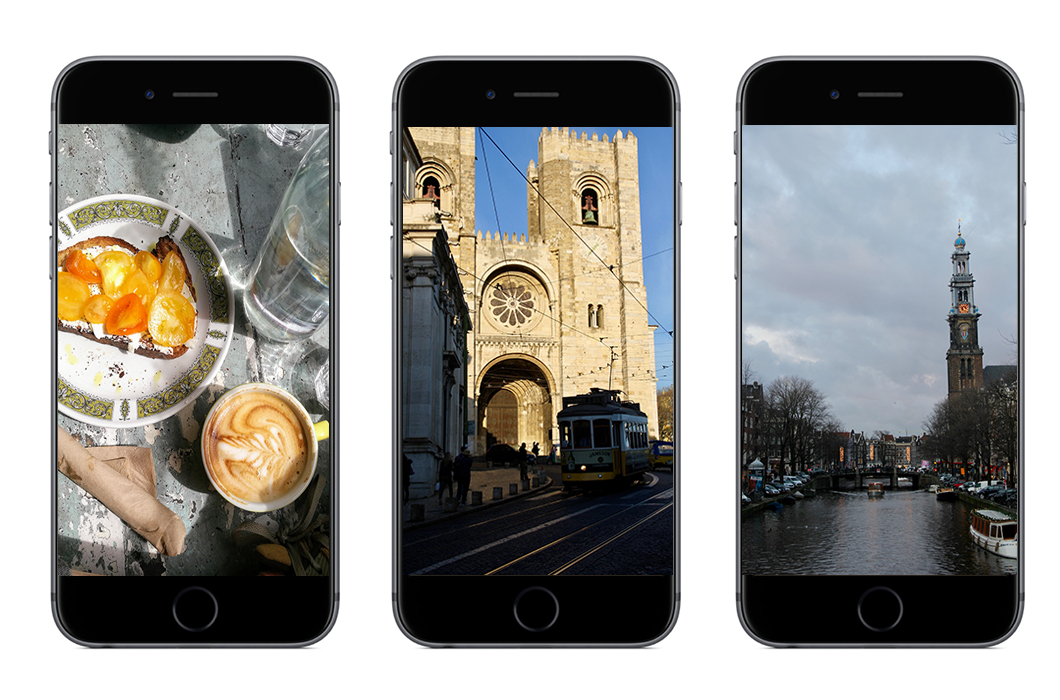[Written by Natash Cunningham]
[Image by Aike Jansen]
When we enter social media, we enter an environment that promises us connectivity. We enter a platform as if literally stepping onto a stage on which there is pressure to embody a readily consumable ideal. And we can ‘embody’ this ideal through existing in the mode of a picture-perfect account, interacting with people all over the world whilst being completely alone – distanced both from ourselves and from the experience we are documenting. The spectre-like audience watches the projection of ourselves whilst we play out a filtered reality. I have often wondered- just like we can filter a picture, could we filter out the negative aspects of social media, to embrace and take charge of the ‘distance’ we are subjected to?
Social media is a way of documenting our lives as much as it is a mode of living our lives. It allows us to separate ourselves from the experience we are documenting, facilitating a reconstruction of our reality. Yet, despite knowingly being affected by social media’s propensity to act as a diversion from reality, veering towards a ‘chimera’ of reality, I have found that the awareness of this process only enhances my overall experience of reality and of social media.
When documenting an ‘experience’—even if only for a Snapchat story—I feel a sense of ‘elevation’. It’s as if the experience I am documenting has suddenly become the foundation of a ‘greater experience’ which shall be mobilised by social media. This feeling may be a sign of disregard for the reality which sits in front of me; a need for me to take control and somehow validate experience through documentation. Yet, this excitement is not dissimilar to the excitement felt when I am creating something; the excitement of being inspired by something I have seen or heard and being able to transfigure it into something perhaps greater than its original form. Even if I do experience certain moments through the lens of social media, my experience is not nullified; it is just, much like the event or idea I am recording, transfigured. There is value to be found in ‘experiencing via documentation’.
Experiences are one thing, but the distance created by social media seems much more pernicious when thinking of how I may be ‘transfiguring’ myself as well as my reality. Self-editing can make us lose value in our unedited selves, until we can only accept ourselves through the lens of social media. This process seems inevitable in a society which demands us to adhere to a certain mould. However, when I post an edited picture of myself on social media, I try to shake off the worry that I am living a lie or even erasing part of myself. I relish in the idea that I can live in poses and filters which I cannot embody in an unfiltered reality.
Even though social media may distance us from ‘natural expression’, I have found that it equally opens new opportunities for self-expression. Just as someone may be voiceless until they are given a pen and paper, social media offers the opportunity to explore facets of ourselves which we may have otherwise never been able to explore. This does lead to the question of whether we are becoming mere onlookers of our own life, or whether projecting large chunks of our life onto a platform makes these chunks feel like the only valuable experiences we’ve had. Yet, when I perceive what I put on social media—even if it is the most frivolous of things—I view it as something that expresses part of who I am, distanced as it may be from my ‘true’ self. I have found social media to be a means of self-exploration, or an opportunity to go ‘beyond’ myself.
A distance emerges between the self and the content we upload and interact with on social media – this can create a toxic relationship between the online persona and ‘the self’. However, this distance may also become a means of creating a stronger bond with ourselves. Through attempting to filter my perception of social media through exploiting its ‘distance’ from my reality and using it to reclaim a sense of self, I have found social media to be a liberating space. Just as social media can alter reality, we can alter the reality of social media, as well as enhance, and even take some form of control over our experience.
[Image Description: Three iPhones placed next to each other on a white background, each featuring an image: the left one of a coffee and sandwich, the middle one of a tram in Lisbon, the right one of a church tower and canal in Amsterdam.]

